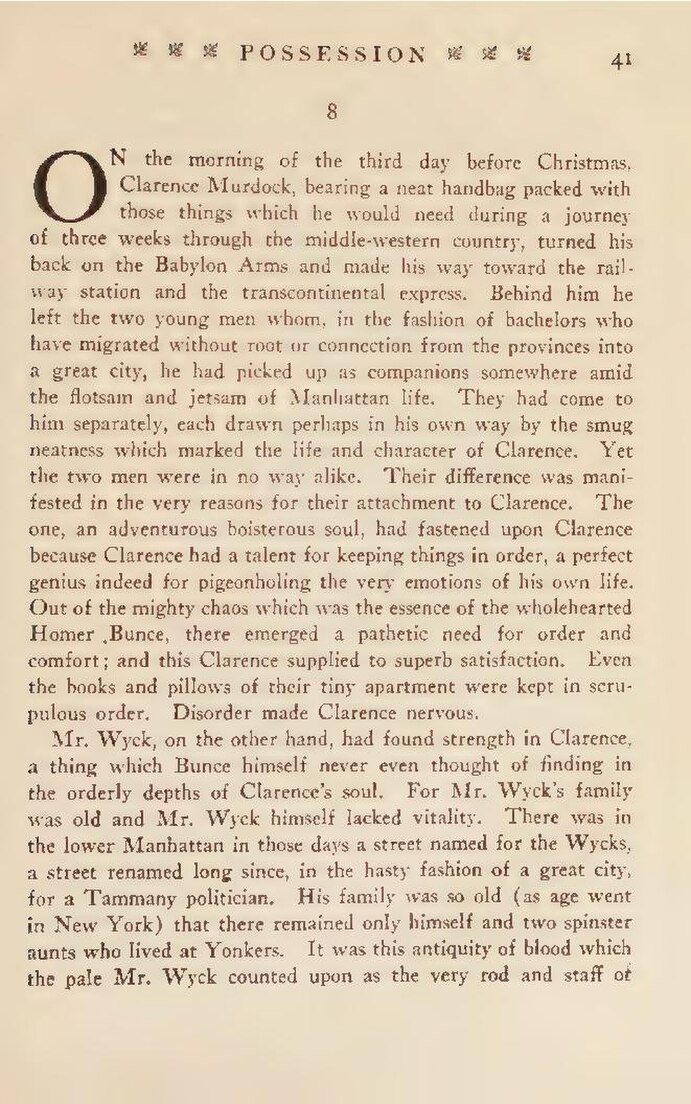ON the morning of the third day before Christmas, Clarence Murdock, bearing a neat handbag packed with those things which he would need during a journey of three weeks through the middle-western country, turned his back on the Babylon Arms and made his way toward the railway station and the transcontinental express. Behind him he left the two young men whom, in the fashion of bachelors who have migrated without root or connection from the provinces into a great city, he had picked up as companions somewhere amid the flotsam and jetsam of Manhattan life. They had come to him separately, each drawn perhaps in his own way by the smug neatness which marked the life and character of Clarence. Yet the two men were in no way alike. Their difference was manifested in the very reasons for their attachment to Clarence. The one, an adventurous boisterous soul, had fastened upon Clarence because Clarence had a talent for keeping things in order, a perfect genius indeed for pigeonholing the very emotions of his own life. Out of the mighty chaos which was the essence of the wholehearted Homer Bunce, there emerged a pathetic need for order and comfort; and this Clarence supplied to superb satisfaction. Even the books and pillows of their tiny apartment were kept in scrupulous order. Disorder made Clarence nervous.
Mr. Wyck, on the other hand, had found strength in Clarence, a thing which Bunce himself never even thought of finding in the orderly depths of Clarence's soul. For Mr. Wyck's family was old and Mr. Wyck himself lacked vitality. There was in the lower Manhattan in those days a street named for the Wycks, a street renamed long since, in the hasty fashion of a great city, for a Tammany politician. His family was so old (as age went in New York) that there remained only himself and two spinster aunts who lived at Yonkers. It was this antiquity of blood which the pale Mr. Wyck counted upon as the very rod and staff of
